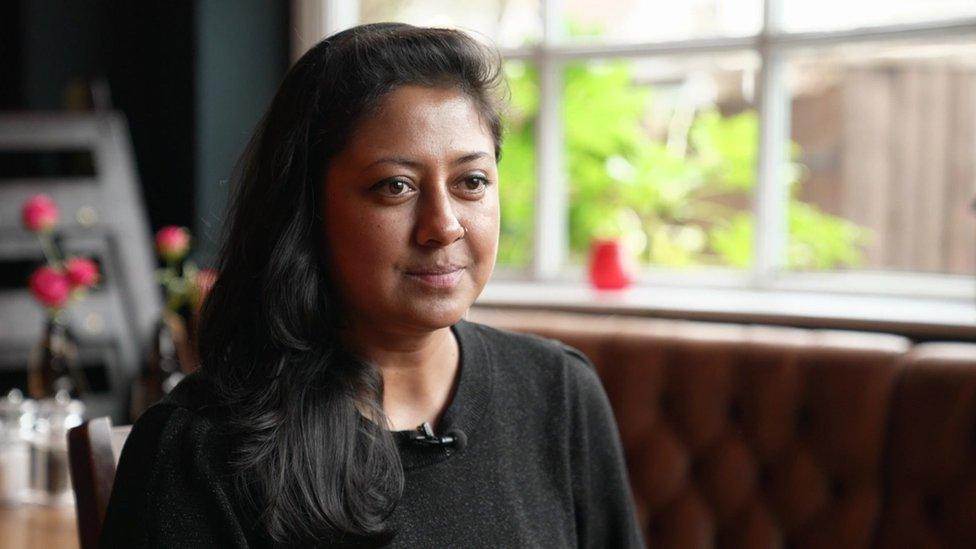Lambeth residents have least trust in Met Police - survey
- Published
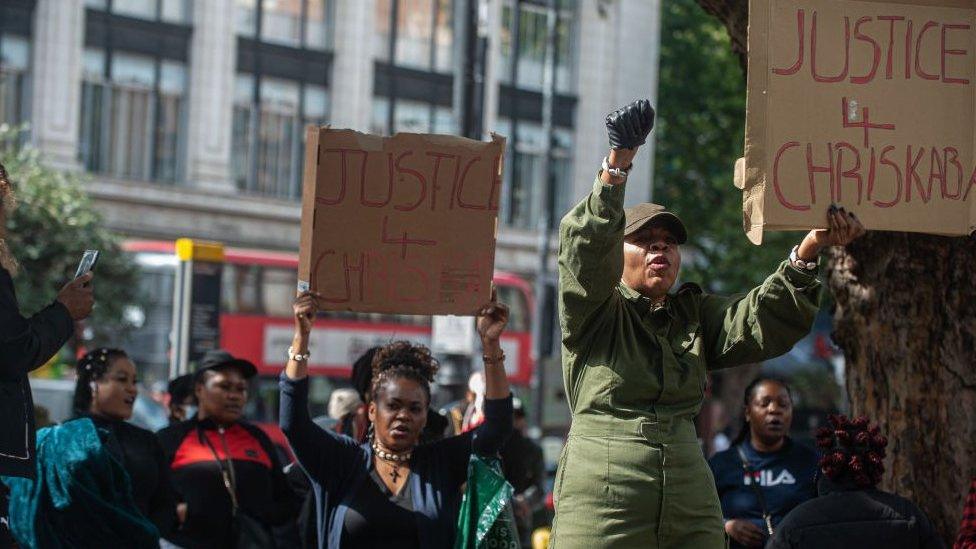
Confidence that police treat everyone fairly is below 50% in Lambeth
Lambeth residents have the least trust in the Metropolitan Police compared to other London boroughs, data shows.
A total of 71% of Londoners taking part in the Mayor's Office for Policing and Crime (MOPAC) survey, external said they trusted police, compared to 60% in Lambeth.
Just under half of Lambeth respondents agreed the Met listened to their concerns, at 47%, which was the second-lowest borough behind Lewisham.
The Met said it was delivering training to its officers with community leaders.
A total of 49% of Lambeth respondents believed the police treated everyone "fairly".
The data was collected between January and March, meaning most of the survey was conducted before the publication of the Casey review.
Despite having the lowest score in the capital, trust in Lambeth has actually increased 7% from its lowest-ever point in September, the same month Chris Kaba, a 24-year-old unarmed black man, was shot dead by police.
His death brought back an uncomfortable feeling for some in the borough.
"They [the police] keep killing us," says Marcia Rigg, whose brother Sean died while he was being restrained in custody at Brixton Police station in 2008.

"We are traumatised by this and people are getting ignored. There is no accountability for their actions, it is just business as usual."
Five Met officers were accused of a string of failings over the treatment of the 40-year-old musician, who died from a heart attack. They were cleared of misconduct in 2019 while no-one was charged over Mr Rigg's death.
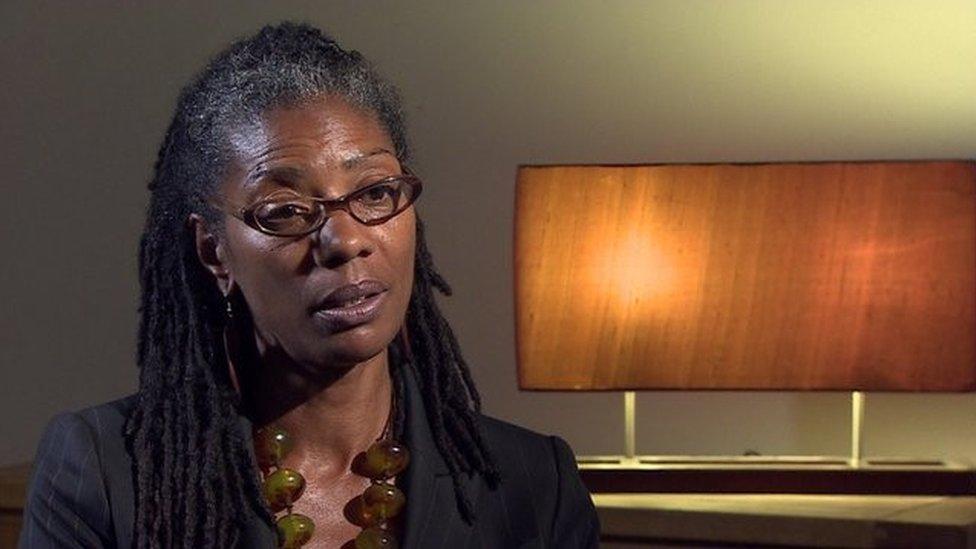
Ms Rigg believes stop and search is still a key barrier in the relationship between police and the black community
The police watchdog has referred Mr Kaba's shooting to the Crown Prosecution Service (CPS) to consider criminal charges. The Met Police marksman who fired the fatal shot has been suspended.
Ms Rigg, who has vowed to continue her "fight for justice" over her brother's death, believes very little has changed since 2008.
The Met has "to right the wrongs, to show they have actually changed", she said.
"We have unlimited reviews and reports. Nothing physically has changed, we are still disproportionally affected by stop and search.
"They deny institutional racism, but it is evident it is still there."
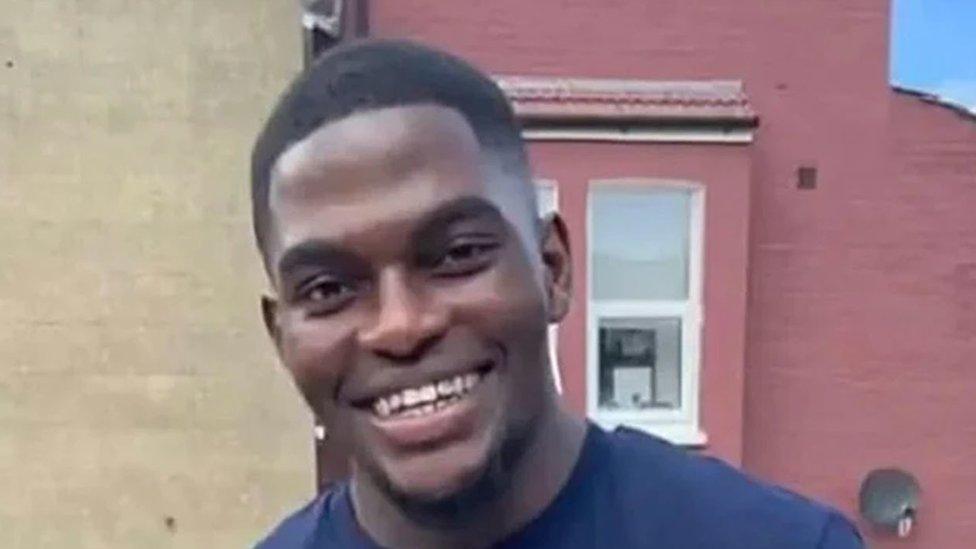
Chris Kaba was shot dead by police in Streatham Hill in September
Half of black Londoners feel the police do a good job, according to the MOPAC survey.
The data also shows 56% of black Londoners believe the Met treats everyone fairly, with the figure falling to 47% for those of mixed ethnicities.
'Nobody to talk to'
Errol Patterson is a former police officer who worked in Lambeth for 11 years.
He left the Met in 2008, citing changes to the structure of policing in the area.
"A great deal of my time was spent as a community liaison officer with the black community, it was an important role," he said.
"That style of policing has gone, it is now policing by numbers."
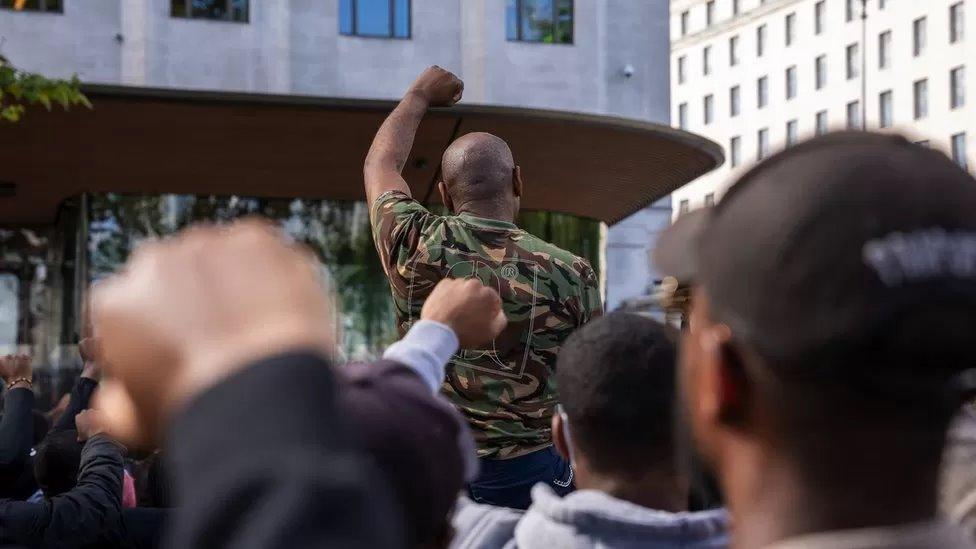
The charity Inquest says black people are seven times more likely to die than white people after being restrained by police
Mr Patterson attributes the borough's lack of trust in the police force to these changes.
"You have not got that link," the former officer added. "People feel there is nobody to talk to.
"Confidence has gone down because you have not got engagement; you need someone who understands the culture, you need someone from the black community."
Racism 'deeply entrenched'
Lee Jasper, who was a senior policy adviser on equalities to former London mayor Ken Livingstone, agrees that removing liaison officers has made communication more difficult between police and the communities.
"Lambeth is the worst borough for racist policing in the capital," he claimed.
"There is institutionalised racism in the Met, it is deeply entrenched, they employ racists.
"It needs complete reorganisation from the ground up".
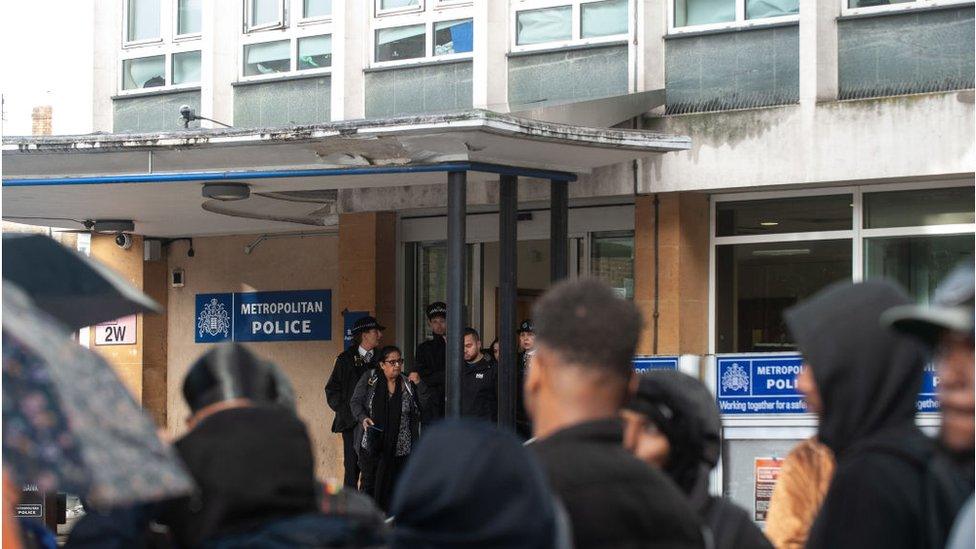
Protesters gathered outside Brixton police station following the death of Chris Kaba
In March, the Met Police was found to be racist, misogynistic and homophobic by the Baroness Louise Casey's review.
Following the damning report, the Met's Commissioner Sir Mark Rowley said he was "determined" to restore public trust.
'We're working hard'
But he refused to accept the force's problems were "institutional", saying the word had become politicised and was ambiguous.
Supt Dan Ivey, from the Met's Central South Command Unit which covers Lambeth, said: "We're working hard to increase our officers' understanding of different cultures and the history of policing different communities, particularly black communities and working with Lambeth community leaders in delivering this training.
"In the last 12 months, we have invested in a new town centre team for Brixton, who are dedicated to listening to local people and tackle the things that really matter to them."
He said a new Police Encounter Panel made up of independent Lambeth stakeholders had been set up to "scrutinise our work", while community engagement officers had been introduced, who will work alongside neighbourhood policing "to really understand what matters most to local residents".
"We recognise the Met is not yet free of discrimination, racism or bias, but we are changing to build a Met which is," he said.

Follow BBC London on Facebook, external, Twitter , externaland Instagram, external. Send your story ideas to hellobbclondon@bbc.co.uk, external
- Published6 April 2023
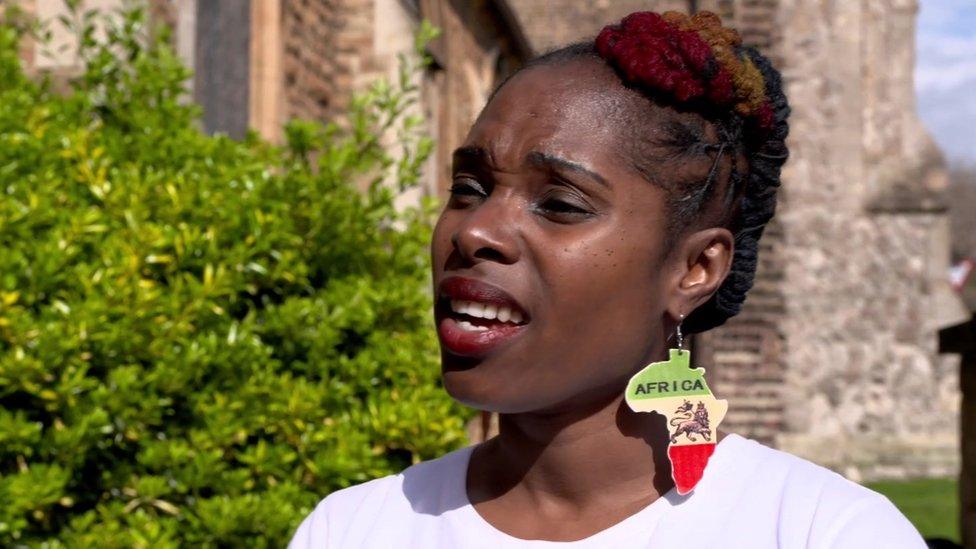
- Published6 April 2023
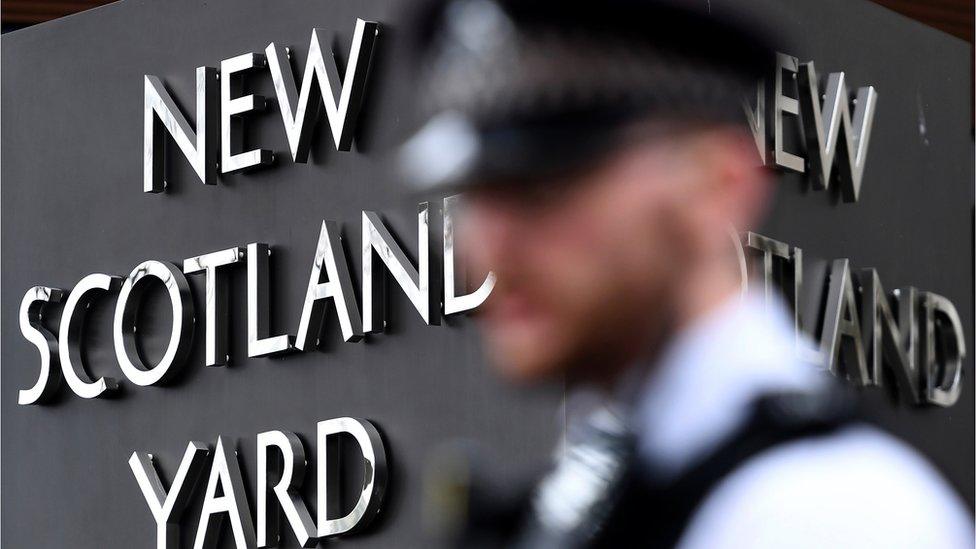
- Published21 March 2023
